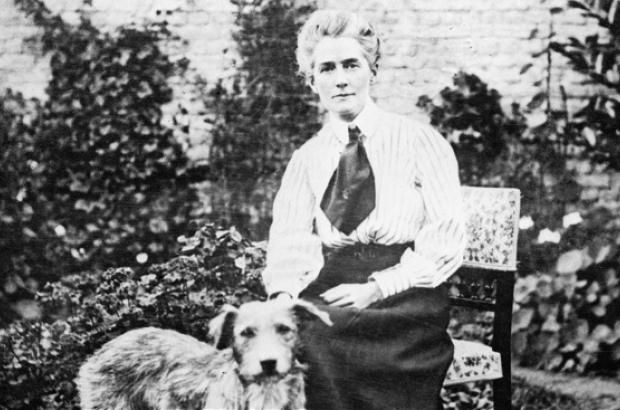- Daily & Weekly newsletters
- Buy & download The Bulletin
- Comment on our articles
100 years later: Remembering Edith Cavell's 'ultimate sacrifice'
At dawn on 12 October 1915, British nurse Edith Cavell - one of the heroines of the first world war - was executed by a 16-man firing squad in German-occupied Brussels.
At the national shooting range in Schaerbeek that morning, she was still wearing her uniform from the hospital where she worked as head nurse, treating injured soldiers and civilians from both sides of the conflict without discrimination. She said on the eve of her execution: "Patriotism is not enough. I must have no hatred or bitterness for anyone."
"Several people who saw Miss Cavell yesterday said that she was perfectly calm and dignified. She has died like a martyr," wrote Amy Hodson, a British schoolgirl living in Belgium during the war who was 14 at the time of the execution. Edith Cavell was a family friend - and Amy's wartime diaries have now been transcribed and published by her grand-niece Monica Kendall.
A nursing pioneer, Cavell had helped establish the first nursing school in Belgium and was instrumental in modernising the profession, eventually providing certified trained nurses for 40 institutions in Brussels.
After the war broke out, she gave refuge to 200 lost and wounded Allied soldiers, then provided them with false papers and a few francs, working with the Belgian underground network to smuggle them out to the Netherlands.
"[Cavell] thought that if she didn't help them, they'd be shot," says Catherine Butcher, author of Edith Cavell: Faith Before the Firing Squad, in an interview for Christian Today. "Life was sacred to her. She knew what she was risking. There was no suggestion that she didn't agree she was guilty."

Commemorations
Princess Anne, whose great-grandfather King George V attended Cavell's state funeral at Westminster Abbey, is in Brussels to attend a centenary commemoration at the Senate, where Cavell was tried and sentenced to death by a German court-martial. Also attending today will be descendants of Cavell's family, one of whom will read out her last letter encouraging her nurses to remain faithful to their duty of care to all patients.
The Princess Royal will then join Princess Astrid of Belgium to unveil a bust of Cavell, designed by the Belgian sculptor Nathalie Lambert, in Parc Montjoie, a few hundred metres from the hospital in Uccle that bears the nurse's name.
During a poppy-planting ceremony outside Edith Cavell hospital last year, Britain's junior Foreign Office minister Mark Simmonds said: "Edith Cavell was an extraordinarily brave woman and gave the ultimate sacrifice trying to protect injured servicemen in Brussels during the first world war. It is absolutely essential that we commemorate the sacrifice both of Belgian people and of British people a hundred years on, and that we inform young people to ensure that there can be no repeat of the terrible trauma that was caused in that time."
Other events
An exhibition dedicated to Edith Cavell can be seen at the Maison des Arts, 102 rue du Doyenné in Uccle until 30 October, open daily 10.00-18.00 except Mondays. Entrance is free.
Uccle Cultural Centre, on Rue Rouge, has a screening of Dawn, the 1928 film of Edith Cavell's story, newly restored by Cinematek and the British Film Institute, on 28 October at 19.30.
Various privately organised walking and cycling tours around Uccle and Ixelles take in the sites relating to Cavell's life and work. More details can be found on the website of the Belgian Edith Cavell Commemoration Group at www.edith-cavell-belgium.eu



















